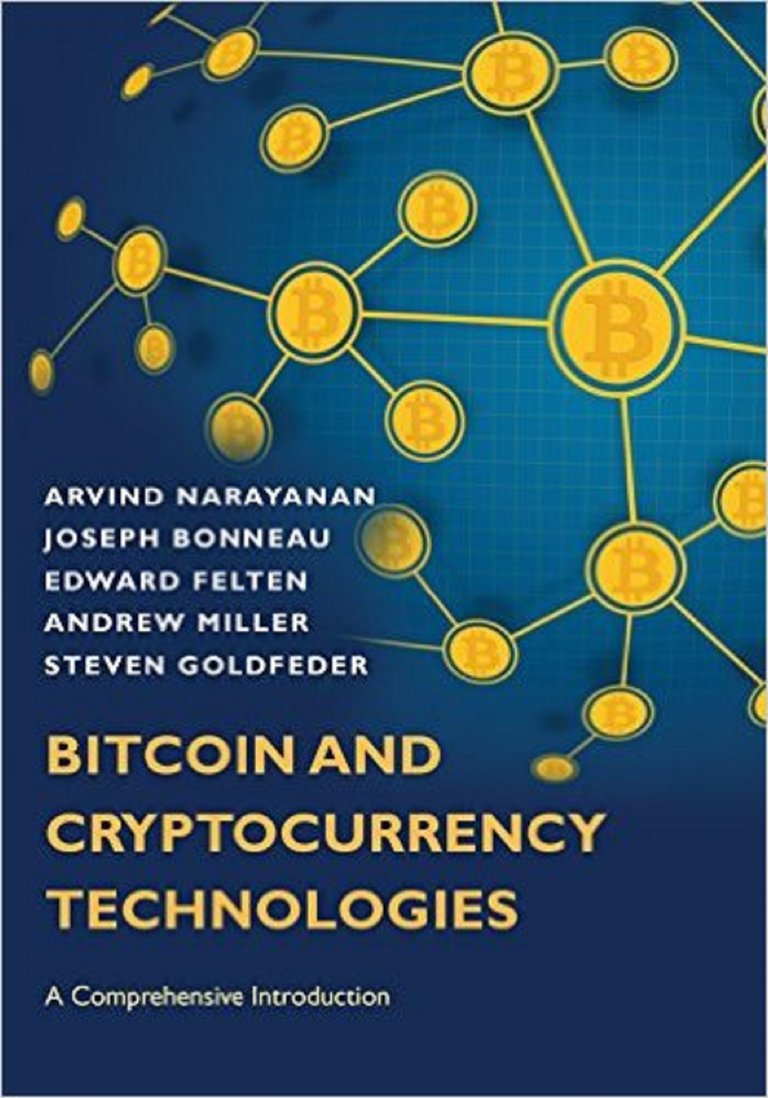
About the book
Bitcoin and Cryptocurrency Technologies provides a comprehensive introduction to the revolutionary yet often misunderstood new technologies of digital currency. Whether you are a student, software developer, tech entrepreneur, or researcher in computer science, this authoritative and self-contained book tells you everything you need to know about the new global money for the Internet age.
How do Bitcoin and its block chain actually work? How secure are your bitcoins? How anonymous are their users? Can cryptocurrencies be regulated? These are some of the many questions this book answers. It begins by tracing the history and development of Bitcoin and cryptocurrencies, and then gives the conceptual and practical foundations you need to engineer secure software that interacts with the Bitcoin network as well as to integrate ideas from Bitcoin into your own projects. Topics include decentralization, mining, the politics of Bitcoin, altcoins and the cryptocurrency ecosystem, the future of Bitcoin, and more.
About the authors
Arvind Narayanan @random_walker
Arvind Narayanan is an Assistant Professor of Computer Science at Princeton. Narayanan leads the Princeton Web Transparency and Accountability project that aims to uncover how companies are collecting and using our personal information. He also leads a research group studying the security, anonymity, and stability of Bitcoin and cryptocurrencies. His doctoral research showed that data anonymization is broken in fundamental ways, for which he jointly received the 2008 Privacy Enhancing Technologies Award.
Joseph Bonneau @josephbonneau
Joseph Bonneau is a Technology Fellow at the Electronic Frontier Foundation and Postdoctoral Researcher at Stanford. In addition to researching Bitcoin and cryptocurrencies he has worked on passwords and web authentication, secure messaging tools, and HTTPS for secure web browsing. Earlier he was as a Postdoctoral Fellow at CITP, Princeton and he has previously worked at Google, Yahoo, and Cryptography Research Inc. He received a PhD from the University of Cambridge and an MS from Stanford.
Edward W. Felten @EdFelten
Edward Felten is a Professor of Computer Science and Public Affairs at Princeton, and the founding Director of the Center for Information Technology Policy. In 2011-12 he served as the first Chief Technologist at the U.S. Federal Trade Commission. His research interests include computer security and privacy, and technology law and policy. He has published more than 100 papers in the research literature, and two books. His research on topics such as Internet security, privacy, copyright and copy protection, and electronic voting has been covered extensively in the popular press.
Andrew Miller @socrates1024
Andrew Miller is an Assistant Professor of Computer Science at the University of Illinois at Urbana-Champaign, and previously received his Ph.D. from the University of Maryland. He has studied cryptocurrencies since 2011, and has authored scholarly papers on a wide range of original research, including new proof-of-work puzzle constructions, programming languages for block chain data structures, and peer-to-peer network measurement and simulation techniques. He is an Associate Director of the Initiative for Cryptocurrencies and Contracts (IC3) at Cornell and an advisor to the Zcash project.
Steven Goldfeder @sgoldfed
Steven Goldfeder is a PhD student in the Department of Computer Science at Princeton University, advised by Arvind Narayanan. He is a member of the Security & Privacy Research Group, a CITP Graduate Student Fellow, and a National Science Foundation Graduate Research Fellow. His research interests include cryptography, security, and privacy, especially decentralized digital currencies. His current work involves increasing the security of Bitcoin wallets.
Jeremy Clark @pulpspy
Jeremy Clark is is an Assistant Professor at the Concordia Institute for Information Systems Engineering in Montreal. He received his PhD from the University of Waterloo in 2011, where he applied cryptography to designing and deploying verifiable voting systems, including Scantegrity — the first use of an end-to-end verifiable system in a public sector election. He became interested in Bitcoin in 2010 and published one of the first academic papers in the area. Beyond research, he has worked with several municipalities on voting technology and testified to the Canadian Senate on Bitcoin.
Video Lectures
Lecture 1 — Intro to Crypto and Cryptocurrencies (Duration 58:41)
Lecture 2 — How Bitcoin Achieves Decentralization (Duration 1:13:40)
Lecture 3 — Mechanics of Bitcoin (Duration 1:19:49)
Lecture 4 — How to Store and Use Bitcoins (Duration 1:21:11)
Lecture 5 — Bitcoin Mining (Duration 1:28:14)
Lecture 6 — Bitcoin and Anonymity (Duration 1:52:07)
Lecture 7 — Community, Politics, and Regulation (Duration 1:14:57)
Lecture 8 — Alternative Mining Puzzles (Duration 44:42)
Lecture 9 — Bitcoin as a Platform (Duration 1:24:55)
Lecture 10 — Altcoins and the Cryptocurrency Ecosystem (Duration 1:04:05)
Lecture 11 — The future of Bitcoin? (Duration 1:24:05)
Lecture 12 — History of Cryptocurrencies [Bonus lecture] (Duration 1:33:15)
References
Originally published at at http://bitcoinbook.cs.princeton.edu/
Lectures also available on the Bitcoin and Cryptocurrency Technologies Online Course Youtube page.

Resteemed
thanks for sharing these videos
Wow!!! so much content for free!!!
keep up your good good work!!!!! You guys are the best!!!
Steemit 4 life!
Cryptocurrency is a fascinating subject, it's a lot of material for a single post, but it's definitely interesting
Perfect for somebody like me who's still new to they cryptocurrency world! Many thanks!
this is very important and valuable post for me...thanks
A wealth of information all in one place, thanks @sydesjokes a place to come back and take one bit at a time.
Thanks for sharing the videos particularly, upvoted and resteemed!